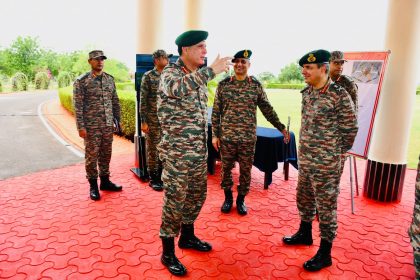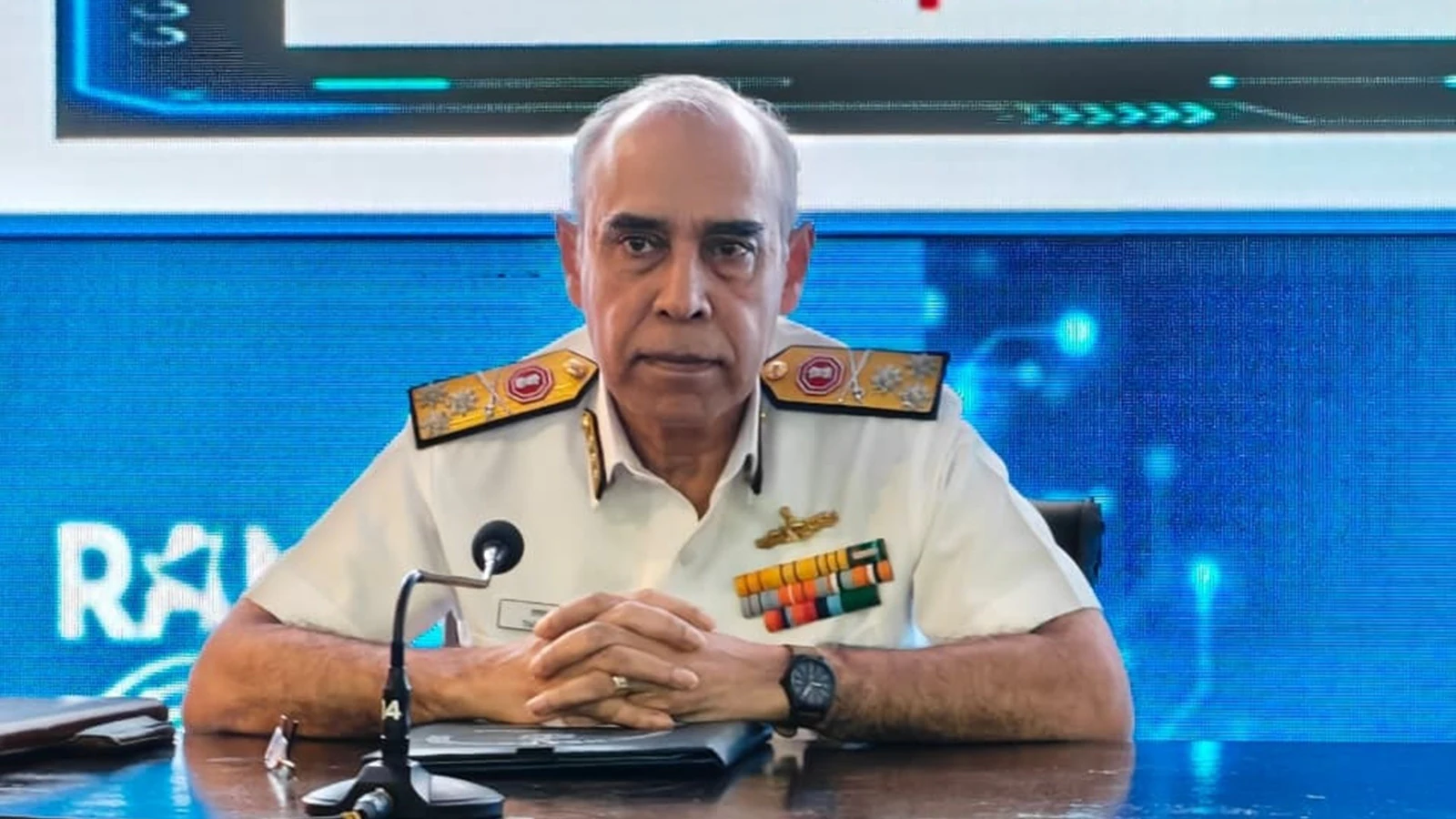10 Best Assault Rifles in the World
These firearms stand as testaments to the advancement in military technology and strategy.
“Gone Are The Days…”: Lt Gen Pratik Sharma On Changing Face Of Terror Operations
Lt Gen Sharma says terrorists now operate from caves, hills, and forests, making counter-terror missions longer and more complex.
IIT-H, Indian Army Launch ‘VIGRAHA’ Centre for Defence Technology Innovation
New Centre of Excellence to Pioneer AR/VR, AI, Robotics, and Drone Technologies for Indian Army’s Future Warfare Needs.
Punjab Floods: Army Rescues Mother and 15-Day-Old Baby Amid Widespread Evacuations
Kharga Corps, Vajra Corps, and BSF Lead Massive Rescue Efforts as Troops, Boats, and Helicopters Save Lives in Flood-Hit Punjab…
Indian Army Pushes Tech Integration in Jaisalmer Review
Southern Command Chief Highlights Drone Use, Self-Reliance & Modernization Drive.
15 MiG-29K Fighters on INS Vikrant Were Ready to Strike Pakistani Navy: Vice Admiral Sobti
Operation Sindoor showcased India’s naval power as INS Vikrant spearheaded a rapid deployment that bottled up Pakistan’s fleet.






